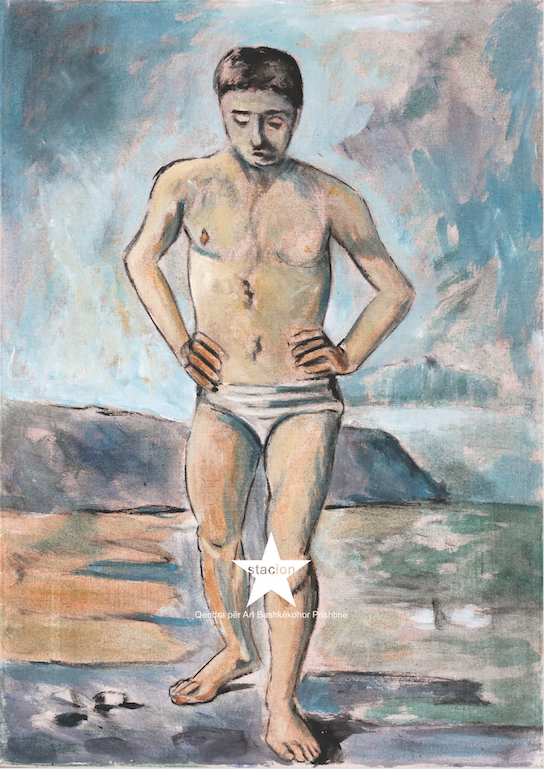
Course 1: Exhibition Histories and Canons of Contemporaneity
Course leaders: Jelena Vesić and Branislav Dimitrijević
Course leaders: Jelena Vesić and Branislav Dimitrijević
4 – 7 July, 2016
Course Description:
Can we talk about a concept as paradoxical as canons of contemporaneity? – the concept that crosses two seemingly disconnected and opposite (almost contradictory) words: canon, which denotes patristic theology, order, rules, and established values, and contemporary, which denotes vibrant global society, novelty, and progressive move in the direction of the New.
If the original mystery of the canon was “to hear God’s truth,” then the mystery of the canon today is based on its tacit endurance in a field of liberal permissions, or, more precisely, upon the critical “immunity” of contemporary art practices that guarantees access to the already seized spaces of freedom of speech and of the autonomy of art.
Since, in a contemporary sense, the canon represents a “tacit authority” it appears as a “truth” that is commonly adopted as natural, logical, and naturalized in the discourses of art and culture. The canon is never outspoken as canon, it is hidden, normalized, and “immaterial” work of dominant ideology. It is pronounced, named, recognized, and announced only through the act of the critique of the canon.
The course Exhibition Histories and Canons of Contemporaneity will explore various models of “critical writing” in the exhibition space, assuming that each exhibition presents a “scripted space” generated through communication and socialization, sometimes a joint action – as the space of the stage, but also the space of the everyday life and broader sociopolitical reality. The course will investigate “cases” of artistic and curatorial critical interventions – the gestures of counter-exhibitionists, non-representationalists, communitarianists and discussionists. Some of the cases will be situated in the geopolitical reality of (post-) Yugoslav historical space since the 1960s up to today. The course will analyse the ways by which the critical gestures preformed within the exhibition space break with the linguistics of normality of conventional exhibition-making, based on spectacularization of individual artworks, the figure of the curator and the oblivious reality of the “supernow”.
It will deal with the following questions: Is it possible to think about exhibition history outside of the contemporary academic canons of classified and standardized knowledge production? Is it possible to think about history as the continuum of breaks with some of the ever dominant ”bourgeois” artistic tendencies? How does “critical writing” in the exhibition space open up this space towards broader social and political realities, against the expanding present-ism and now-ism of contemporary art?
Biographies
Jelena Vesić is independent curator, writer, editor and lecturer, who is based in Belgrade. She was co-editor of Prelom – Journal of Images and Politics (Belgrade) 2001–2009 and co-founder of independent organization Prelom Collective (Belgrade) 2005–2010, active in the field of publishing, research and exhibition practice that intertwines political theory and contemporary art. She is also co-editor of Red Thread – Journal for social theory, contemporary art and activism, (Istanbul) since 2009 and member of editorial board of Art Margins (MIT Press).
In her research, she explores the relations between art and ideology in the fields of geopolitical art history writing; experimental art and exhibition practices of the 1960s and 1970s in former Yugoslavia and Eastern Europe; practices of self-organisation and self- management in contemporary cognitive capitalism, etc. Her curatorial practice often experiments with frameworks, methodologies, and contextual and collaborative aspects of art.
Recent projects: Oktobar XXX: Exposition – Symposim – Performance , Cultural Centre Theatre, Panč evo 2012/Bone Festival, Bern, 2013; Against Art: Goran Đorđević – Copies (1979 -1985), Museum of Contemporary Art and City Gallery, Ljubljana - Belgrade, 2012/13; Lecture Performance, Museum of Contemporary Art and Koelnisher Kunstverein, Cologne-Belgrade, 2009/2010; Political Practices of (post-) Yugoslav Art: RETROSPECTIVE 01, Museum 25th of May, Belgrade, 2009.
Dr Branislav Dimitrijević is Professor of History and Theory of Art at the School for Art and Design and Nova Academia in Belgrade. He also teaches at the Curatorial Practice course at the Belgrade University of Arts (Erasmus Programme). Main field of his historical research is visual art, popular culture and film in socialist Yugoslavia. As a curator he explores “site-specificity” and “physical narrativity” in contemporary art and politics of display.
His curatorial projects include:Murder1 (CZKD, Belgrade, 1997), Konverzacija (MOCAB, 2001), Situated Self: Confused, Compassionate, Conflictual (Helsinki City Museum; MOCAB, 2005),Breaking Step – Displacement, Compassion and Humour in recent art from Britain (MOCAB, 2007), FAQ Serbia (ACF, New York, 2010), No Network (D0 Nuclear bunker, Konjic, Bosnia, 2011), etc.
In the last twenty years he has written and edited numerous books and catalogues including On Normality: Art in Serbia 1989-2001 (MOCA Belgrade, 2005), Good Life: Physical Narratives and Spatial Imagination (Belgrade Cultural Centre, 2012) and most recently GoranDjordjević - Against Art (MOCA Belgrade, 2014). Since 2014 he regularly writes on political and cultural issues for “Peščanik” web portal.
Dimitrijević holds an MA degree in History and Theory of Art from the University of Kent (UK), and has received his PhDin Interdisciplinary Cultural Studies from the University of Arts in Belgrade for the thesis on the emergence of consumer culture in the socialist Yugoslavia.